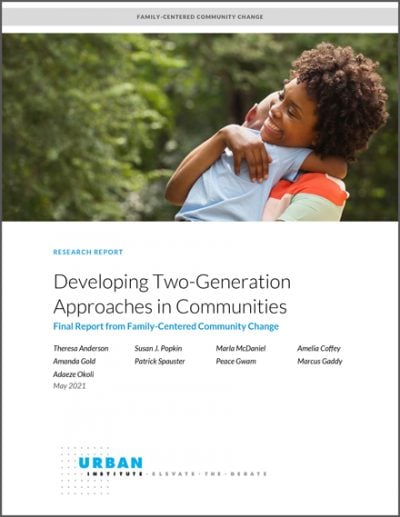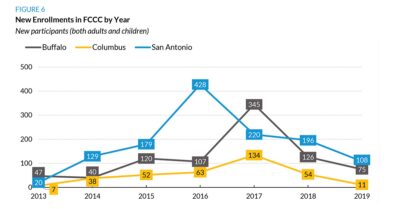Summary
The Annie E. Casey Foundation launched its Family-Centered Community Change® (FCCC) initiative with a goal of integrating two-generation strategies into existing place-based community initiatives. The innovative effort, which ran from 2012 to 2019, focused on supporting local partners in three neighborhoods with low economic resources: Buffalo, New York; Columbus, Ohio; and San Antonio, Texas.
Over the course of the initiative, the sites worked to promote the healthy development and academic success of children while simultaneously delivering adult services focused on parenting and financial stability. In year three, the community partners also received training and technical assistance — provided by the Casey Foundation — aimed at enhancing racial and ethnic equity and inclusion.
The Urban Institute conducted a formative evaluation of this effort, which included: 1) qualitative data collection from interviews and focus groups with partner staff and participants; 2) descriptive analysis of program data; and 3) a cost study.








